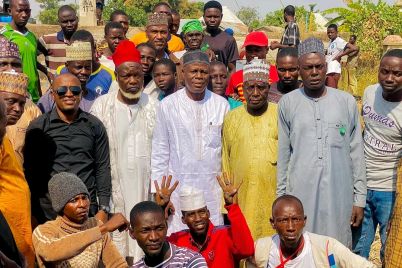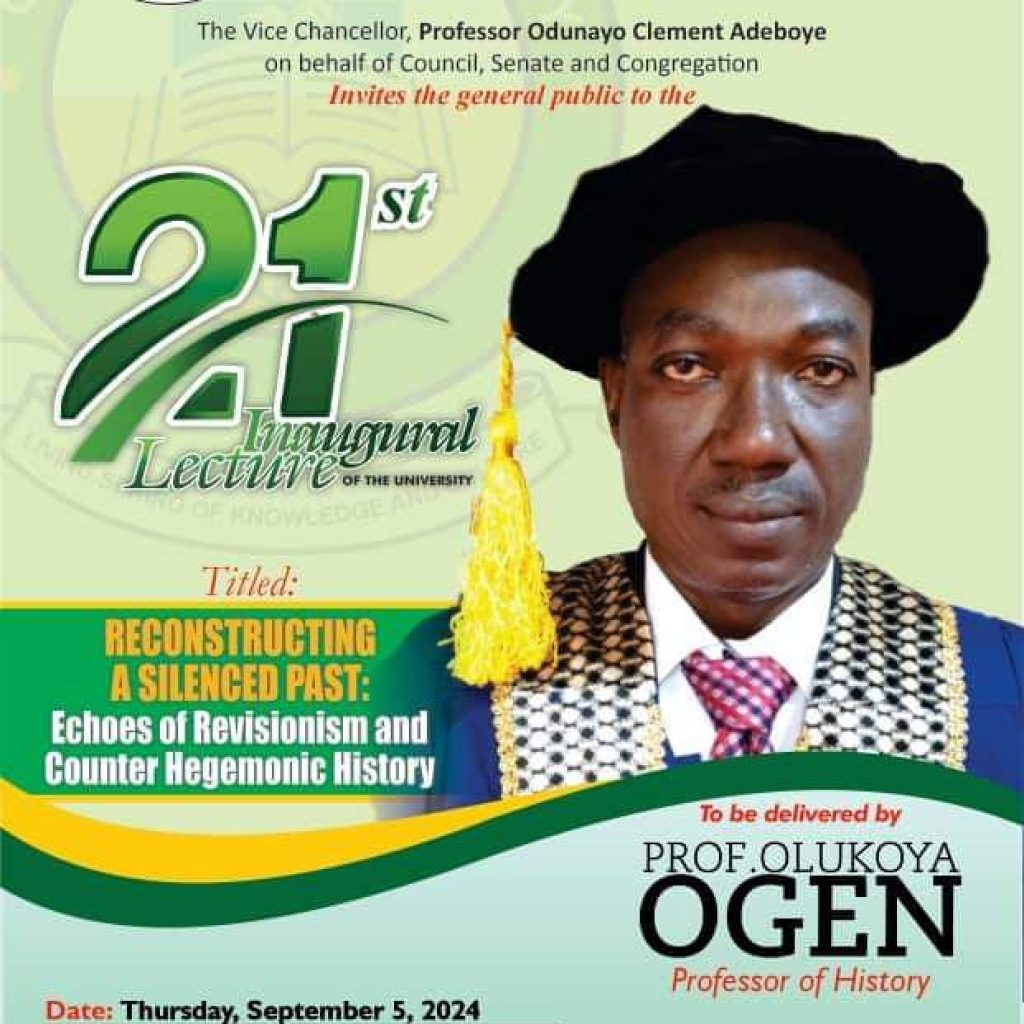
At last, our very own Prof. Olukoya Ogen has been slated for his much-awaited Inaugural Lecture holding next month, says Abdur-Roheem Lepen
Andur-Rohrerm Lepen who is equally a lecturer stated that Prof Ogene is a finest historians of his generation whose scholarship I adore and respect. He is a special breed of historian and reading his works over the years helped shape my own scholarship. Prof. Ogen is not your regular historian. He has a special knack for reconstructing history as the title of his Inaugural Lecture exempliy. Some may call it a revisionist-inclined history which traditional historians often consider a taboo, but Prof. Ogen has consistently deployed very fascinating tools of historical construction that makes history an interesting read and placed this field above others in the humanities.
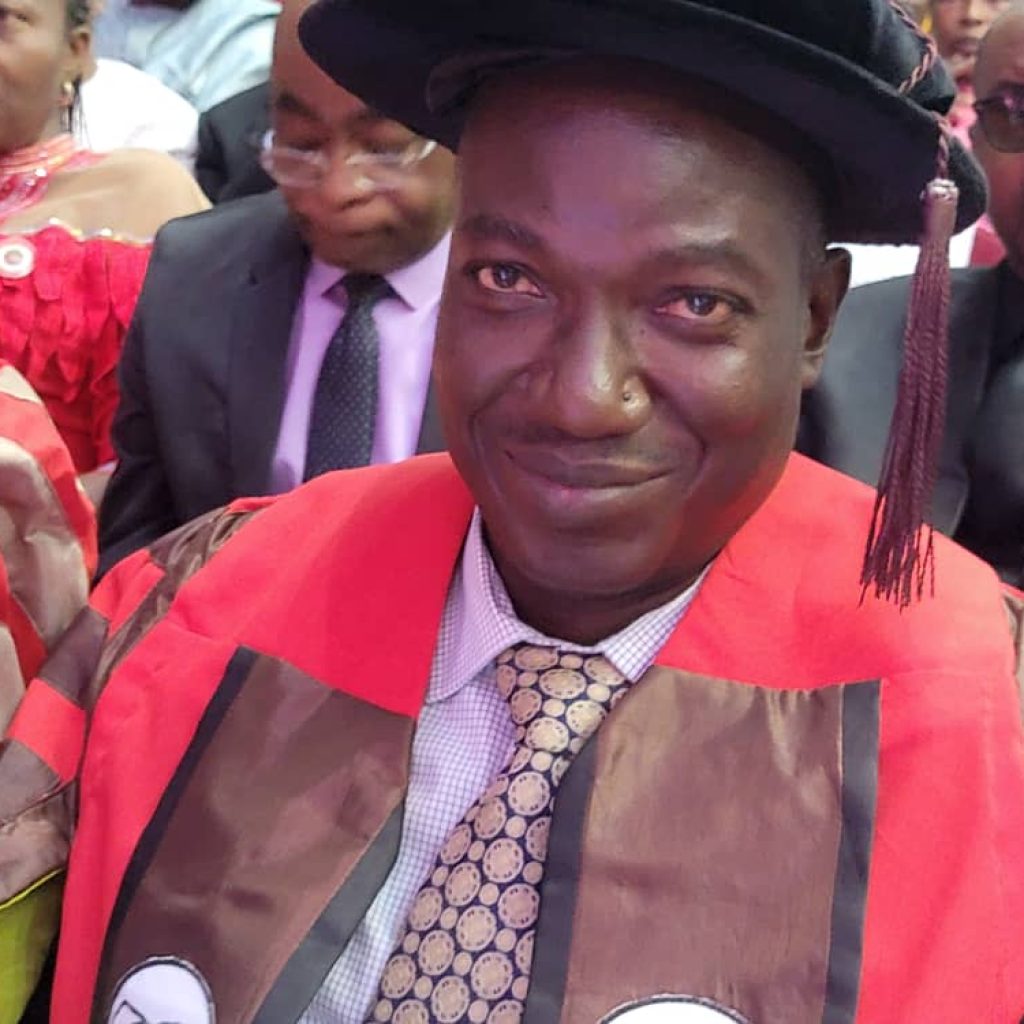
According to him, “I recall being told to visit the Department of History and Strategic Studies, UNILAG to get a copy of his thesis while researching on the deity of retribution, Ayelala, and the dispersal of its worship and deification among the Ikale. Prof. Ogen’s thesis was a not only a reference point but was considered one of the most well-researched and deeply reconstructive history of the Ikale people. For much of Ikale history, it was said that the people were of Benin rather than Yoruba origin. Even the chiefs and local historians of Ikale often referred to Ikale’s past as purely Benin”.
“Prof. Ogen’s thesis deconstructed that age-old claim in Ikale history and provided very rich data to show that the Ikale were of Yoruba origin while the Benin claim was simply a phase, emanating from Benin’s hegemonic status beginning from the 15th/16th century”.
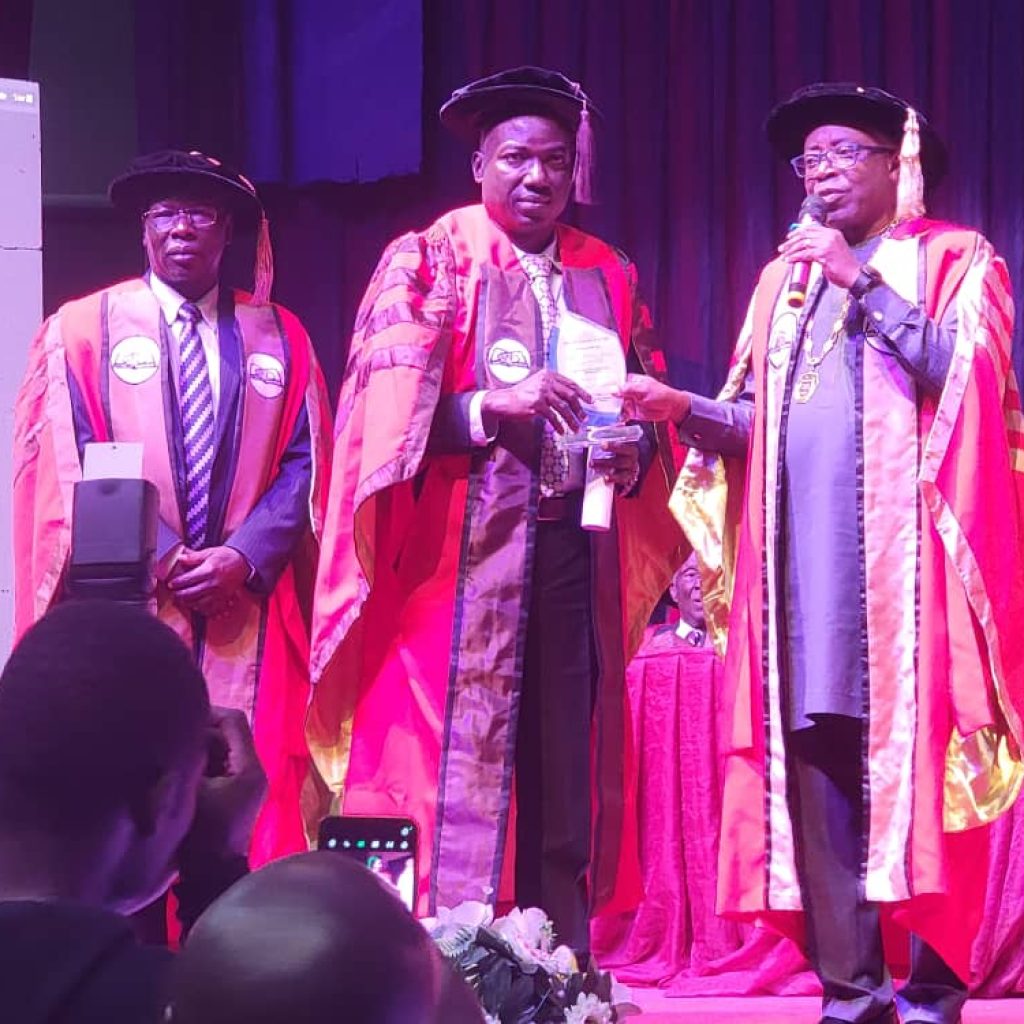
Prof. Ogen means several things to me. He was my teacher, my Head of Department as a student, mentor, most distinguished senior colleague, advisor and icon.
It was a thesis that took Prof. Ogen to several adjoining and distant towns, villages and communities to collect oral sources while deploying human-centred ethnography that became useful in the reconstruction of Ikale history. Of course, the use of very rich archival sources from Ibadan and the UK provided another dimension to the study. No doubt, any Doubting Thomas would have been convinced by the convincing analysis and theoretical frames that Prof. Ogen made use in the thesis. We are hoping his thesis will be turned to a monograph in the not-too-distant future to give a wider readership to those interested in understanding one of the iconic coastal communities that once played host to African nay Yoruba civilization.
I was lucky to have briefly worked under him as a Fellow of the ERC’s everyday religious tolerance…project. As one of the two Principal Investigators, he opened for me vistas of knowledge on how to gather data and carry out research on the field. For a year, I was able to horne my research skills and made very rapid progress in my own research carved out from the project. He was highly instrumental to my first international conference participation and first international publication some years back and it is to his very willing guidance that I aspired to write like him.
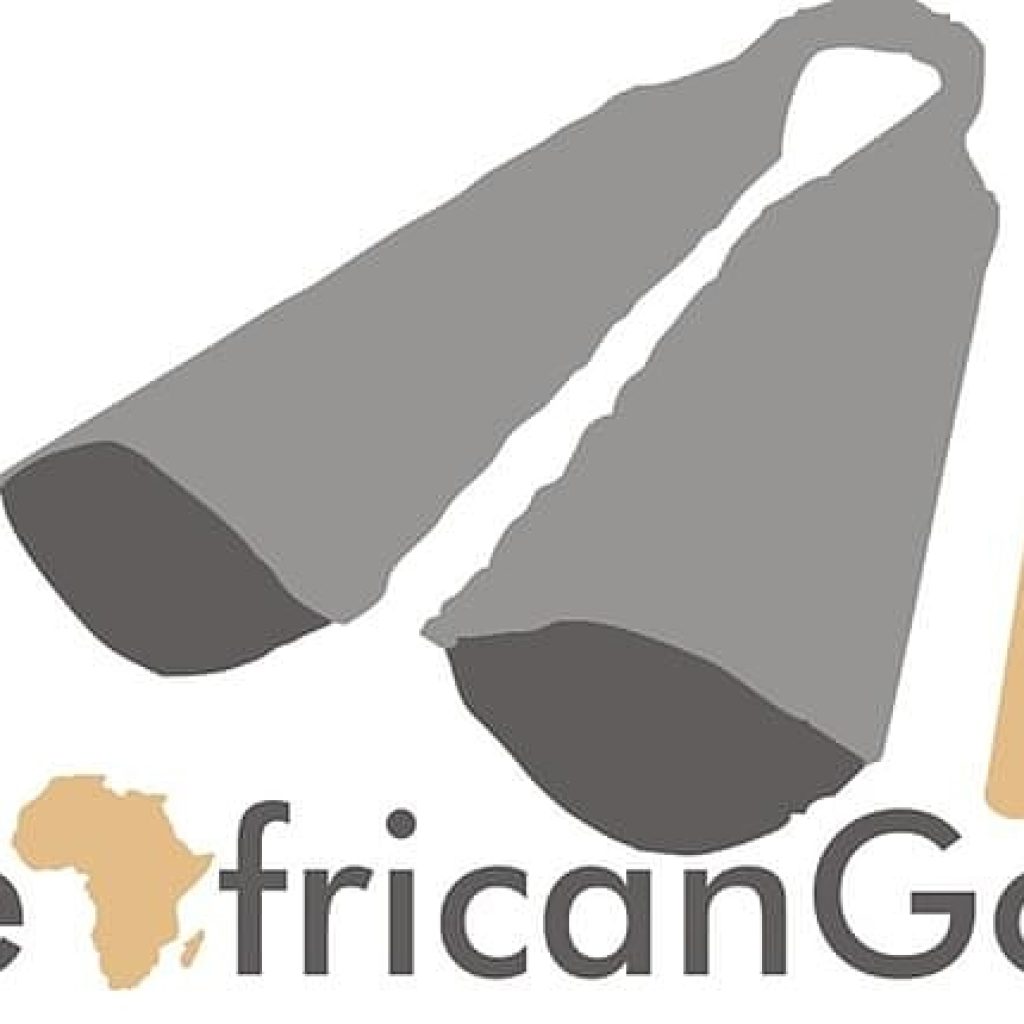
May I also say that Prof. Ogen paid my visa fee while preparing for a conference abroad few years ago, and, most importantly, continued to monitor my progress as I navigated the murky waters of the academia. To him, I owe what I have become today in my chosen career. He was a very fine teacher who would come to class to lecture without a note 😂. I have also continued that tradition and found it even more academically progressive in my line of duty.
He noted that because Prof. Ogen is a man of history, he would be making history in September as the first professor in the Department of History and International Studies, and the second professor in the College of Humanities ans Culture l, Osun State University, to deliver an Inaugural Lecture. On behalf of all of us who you taught and have mentored over the years, I congratulate you on this wonderful feat and pray for more wins as you walk this earth.

